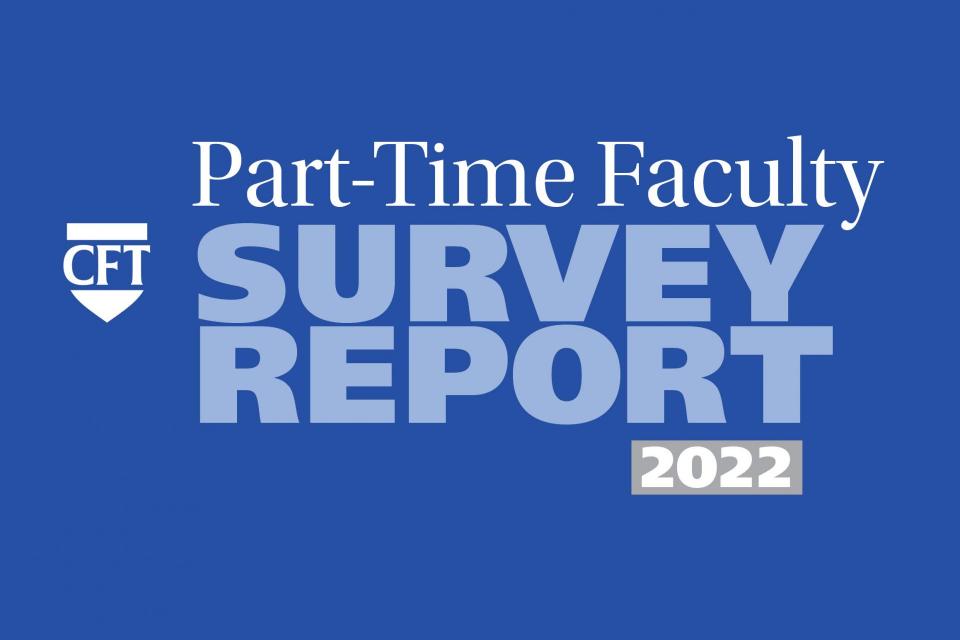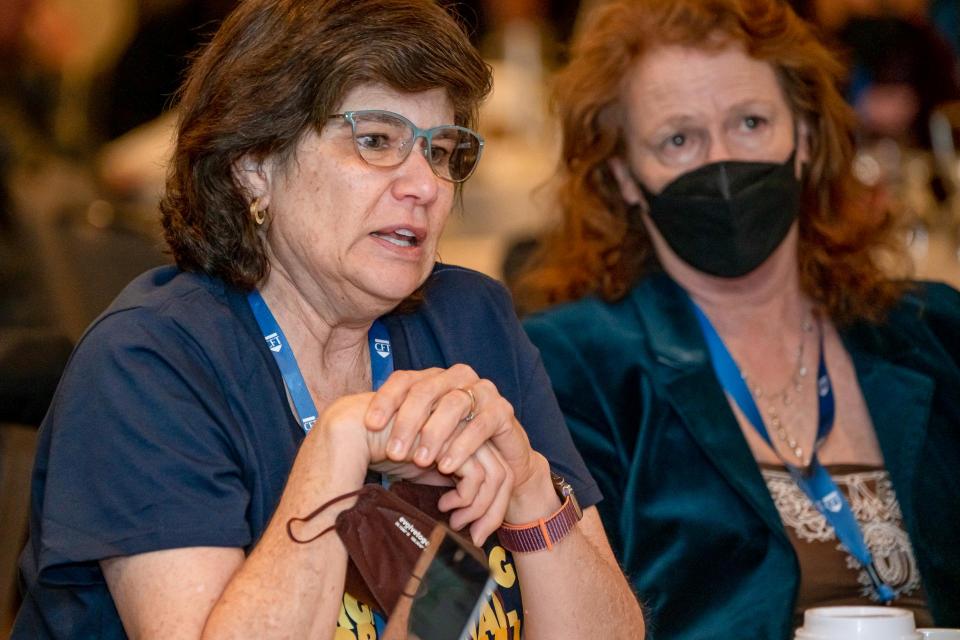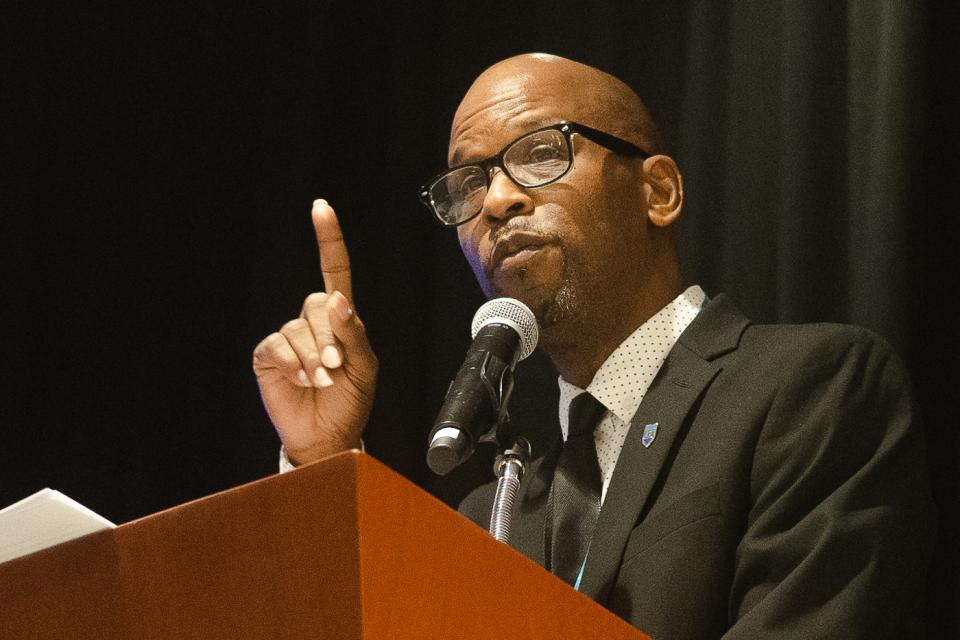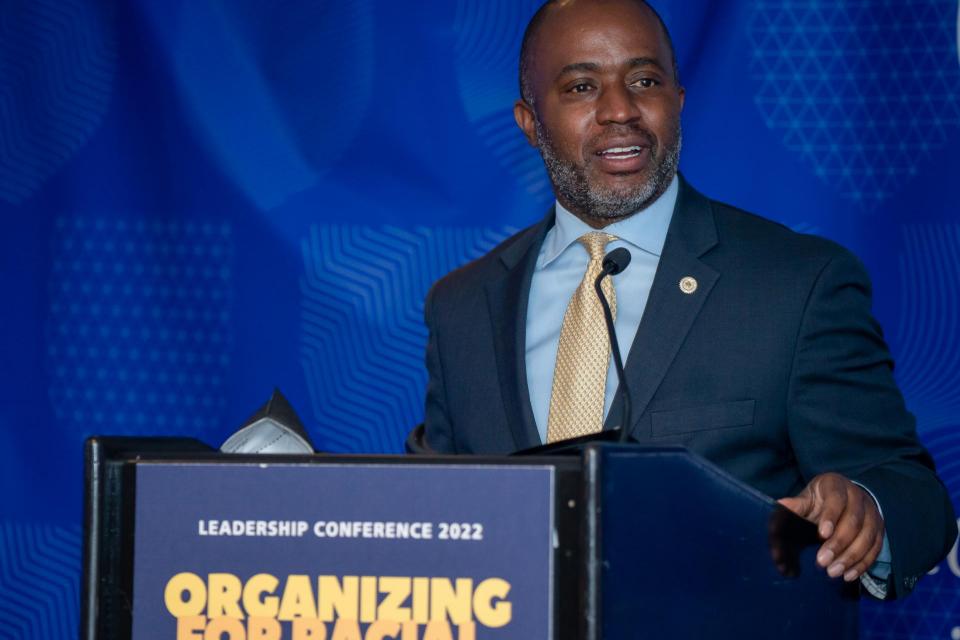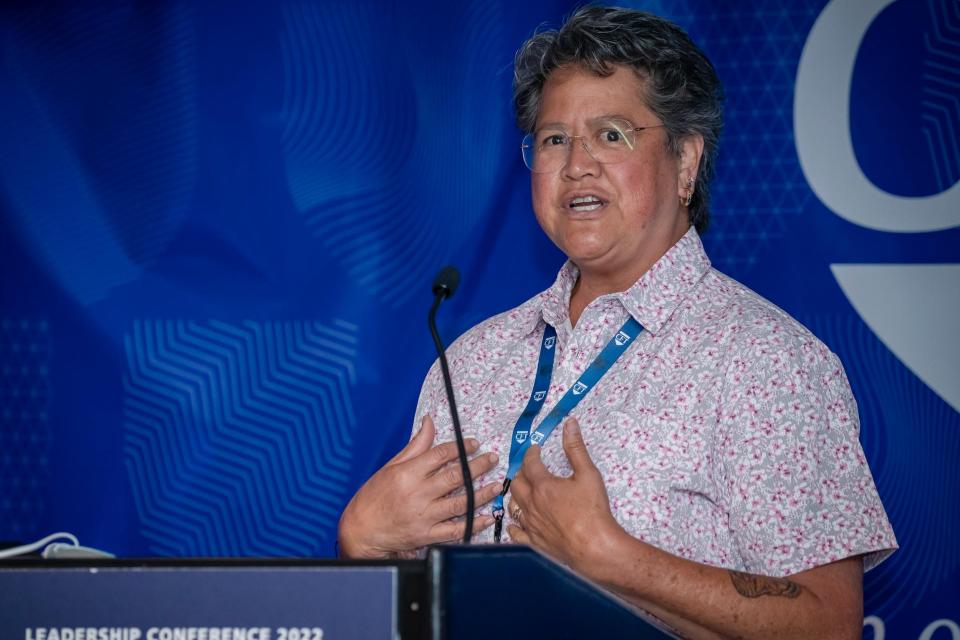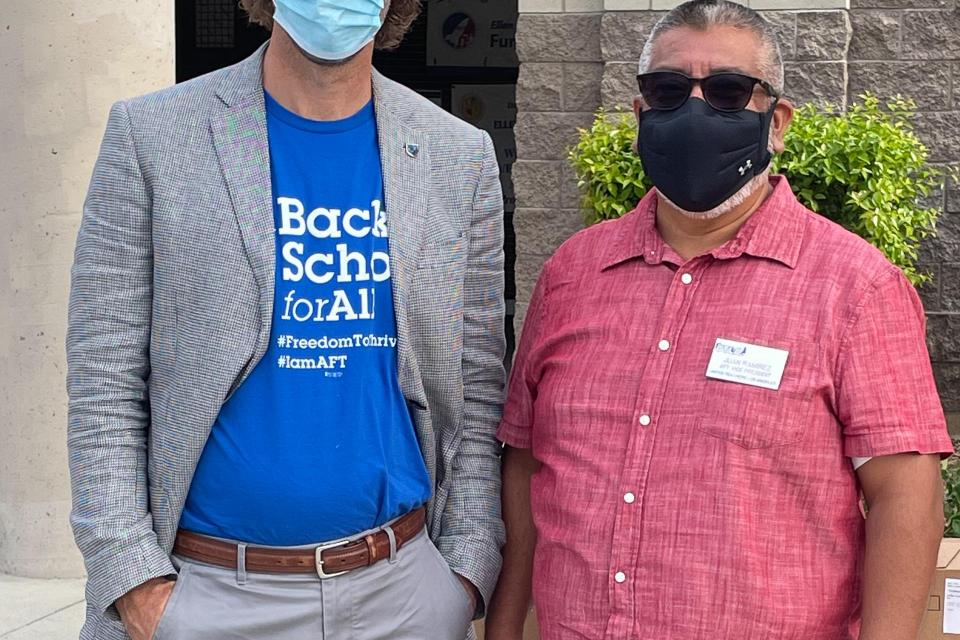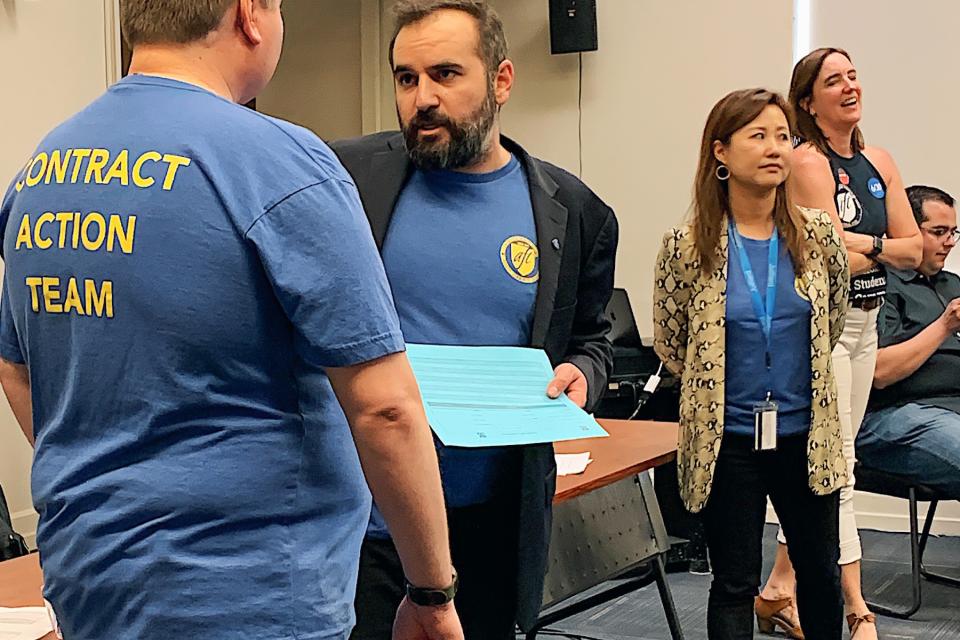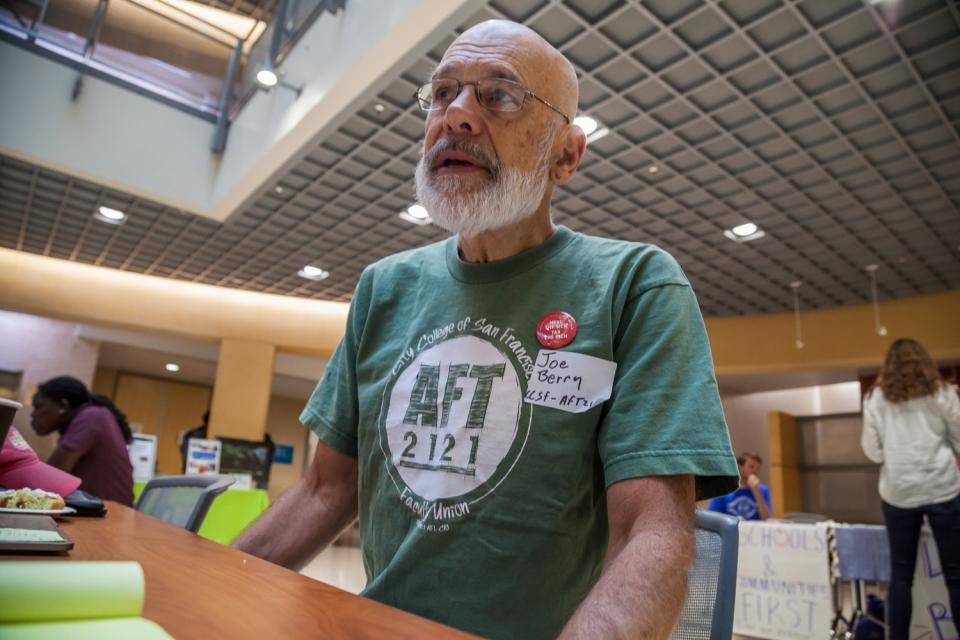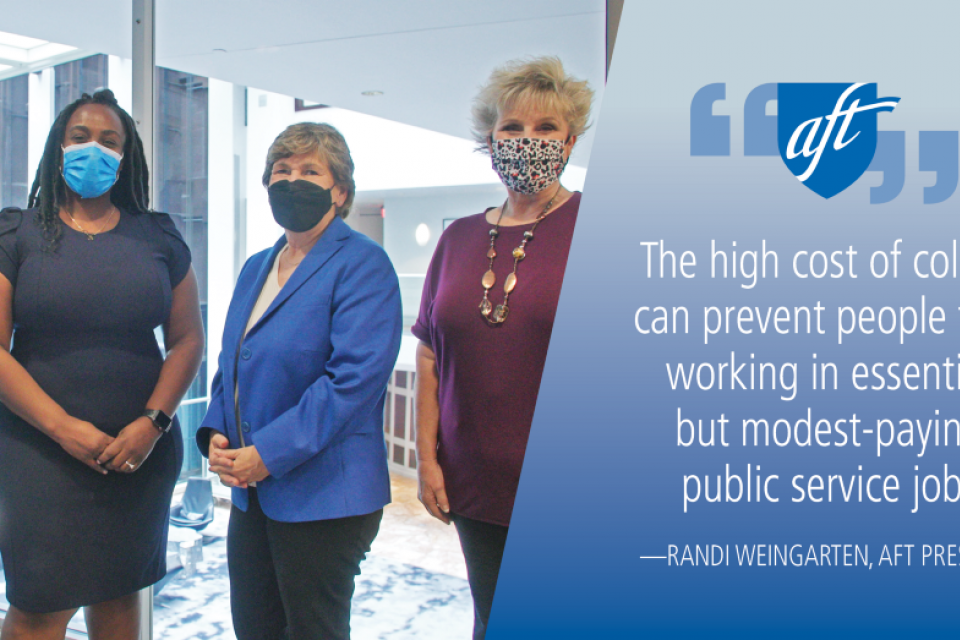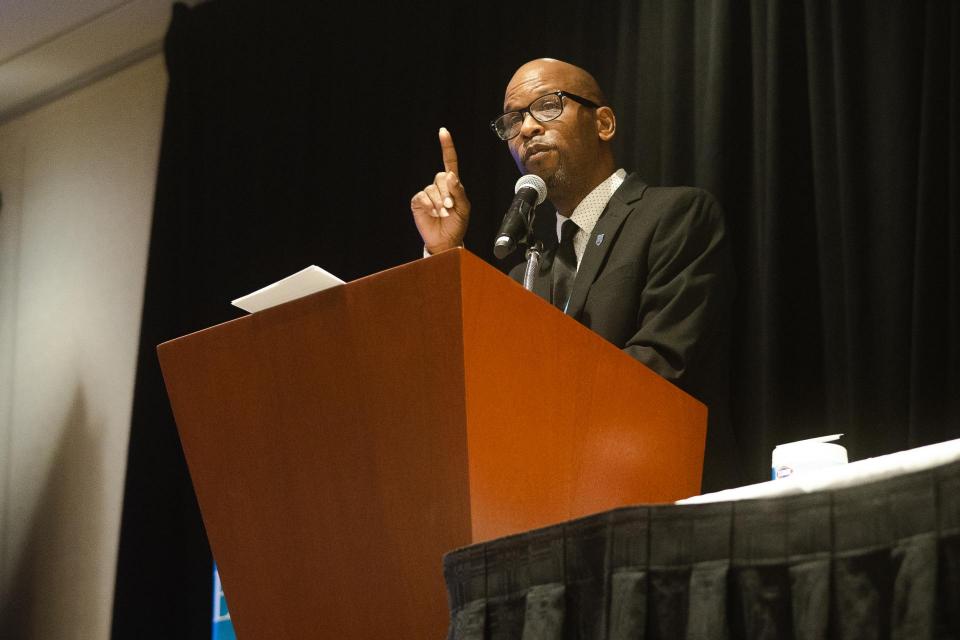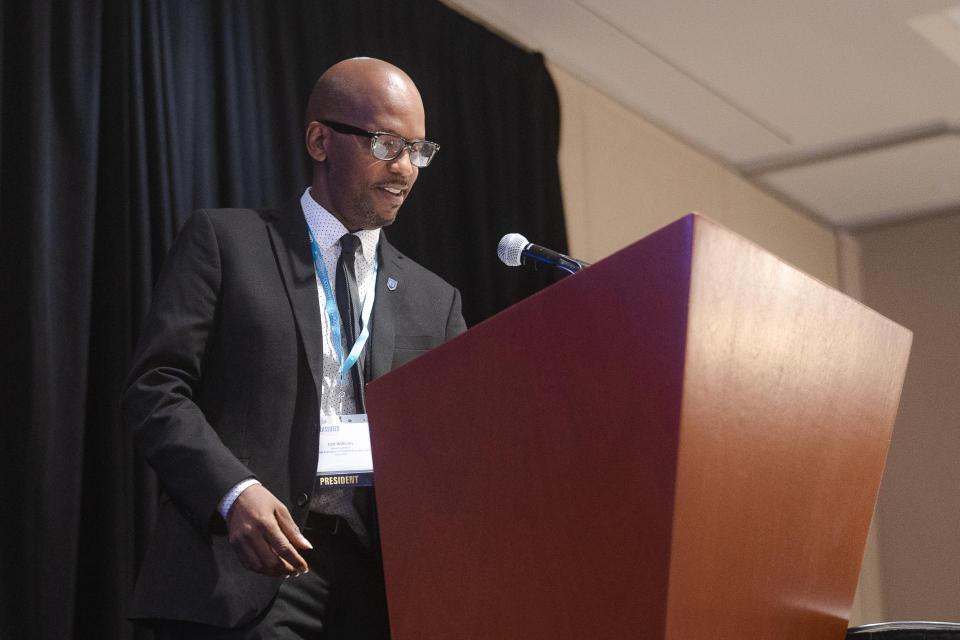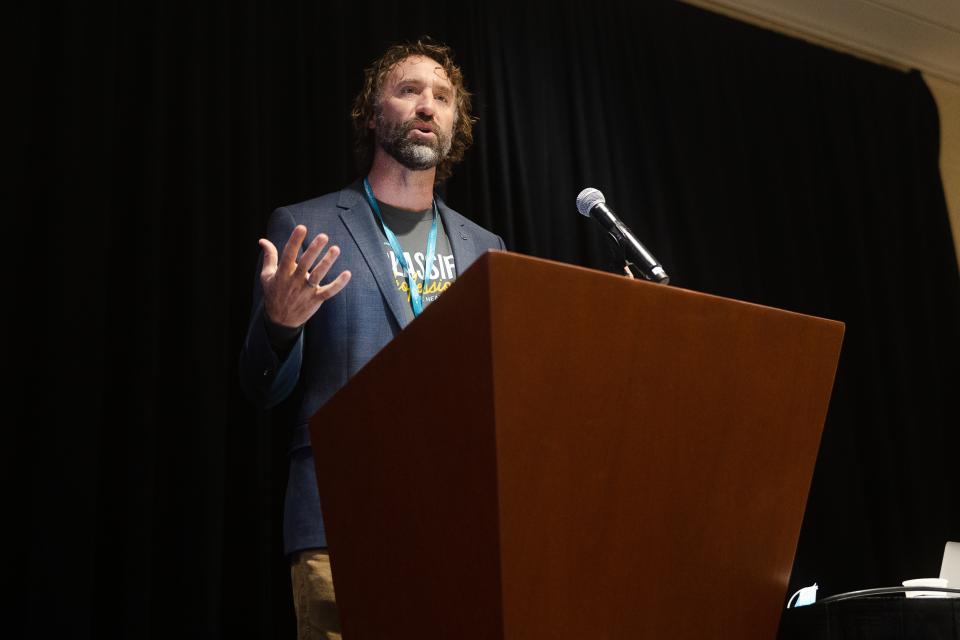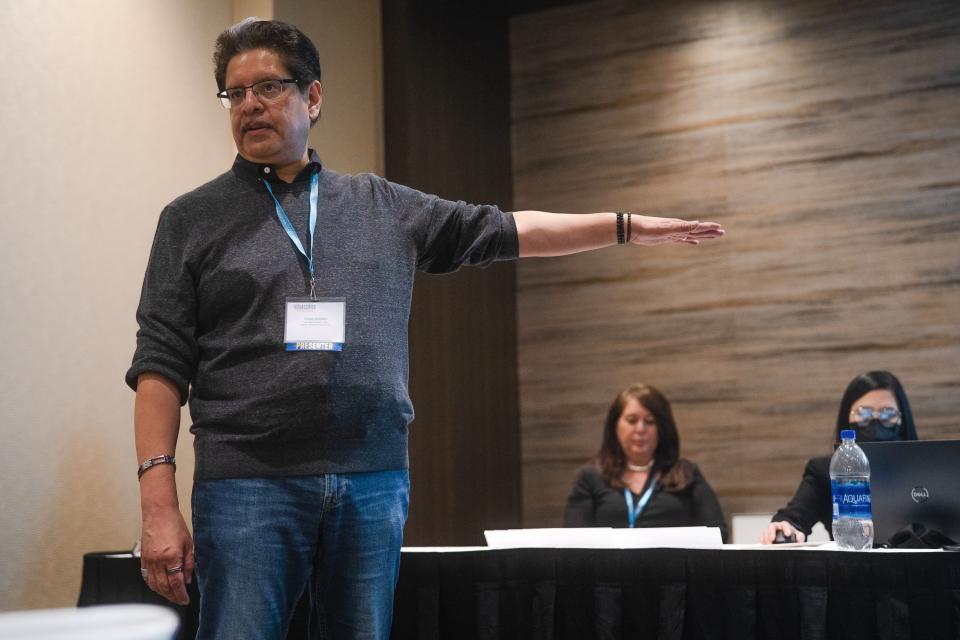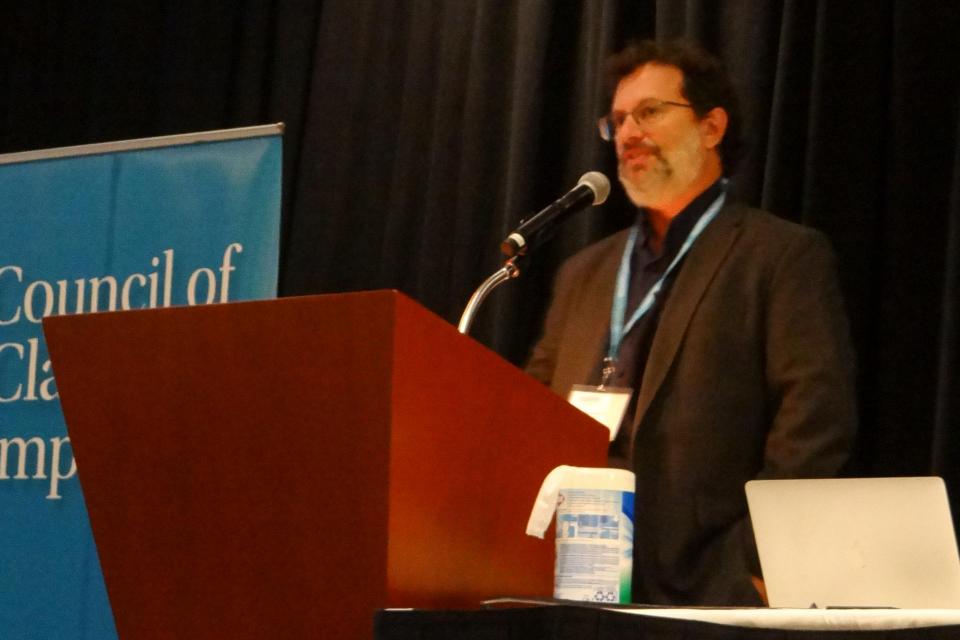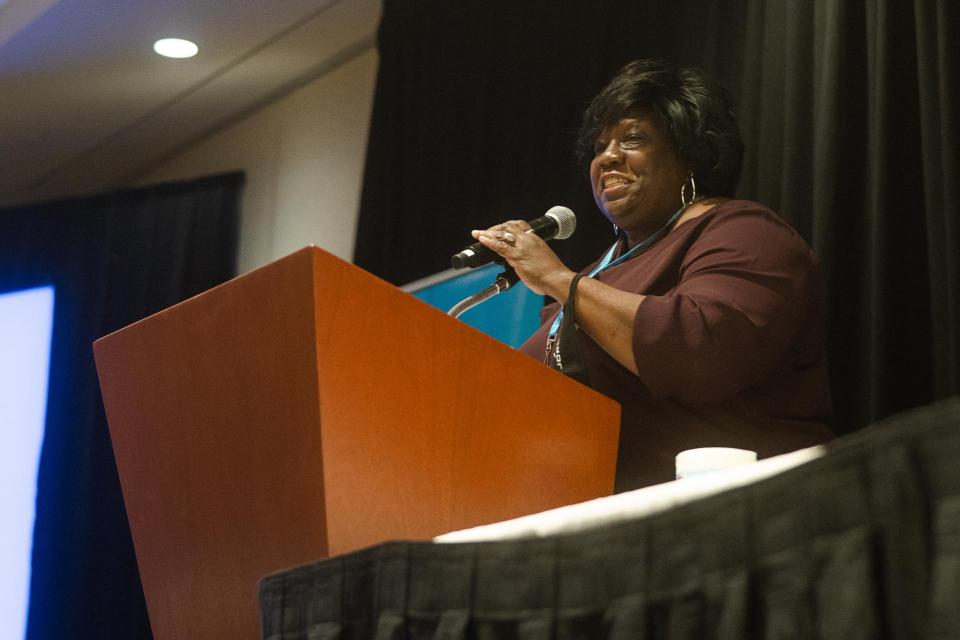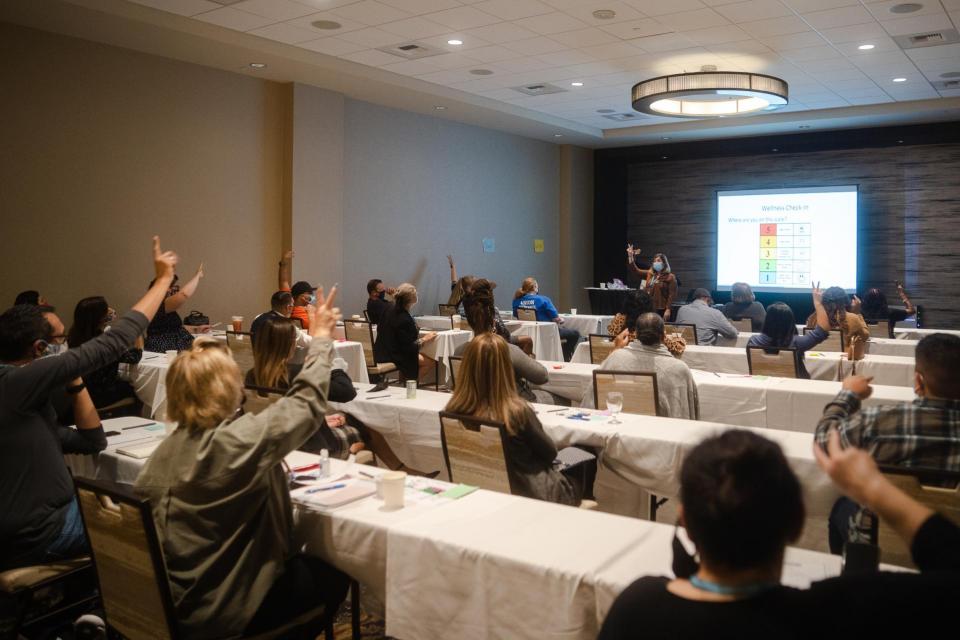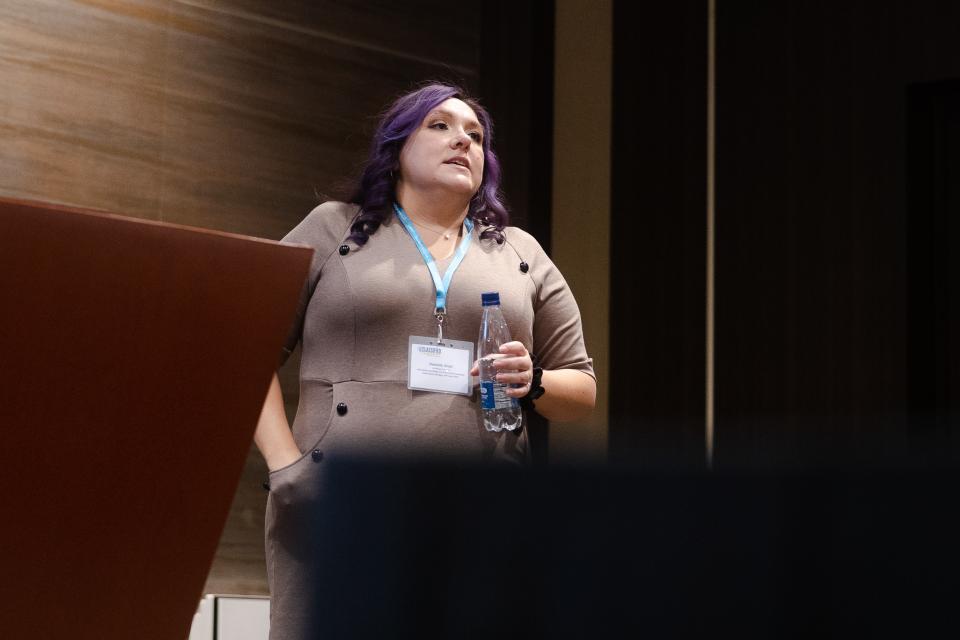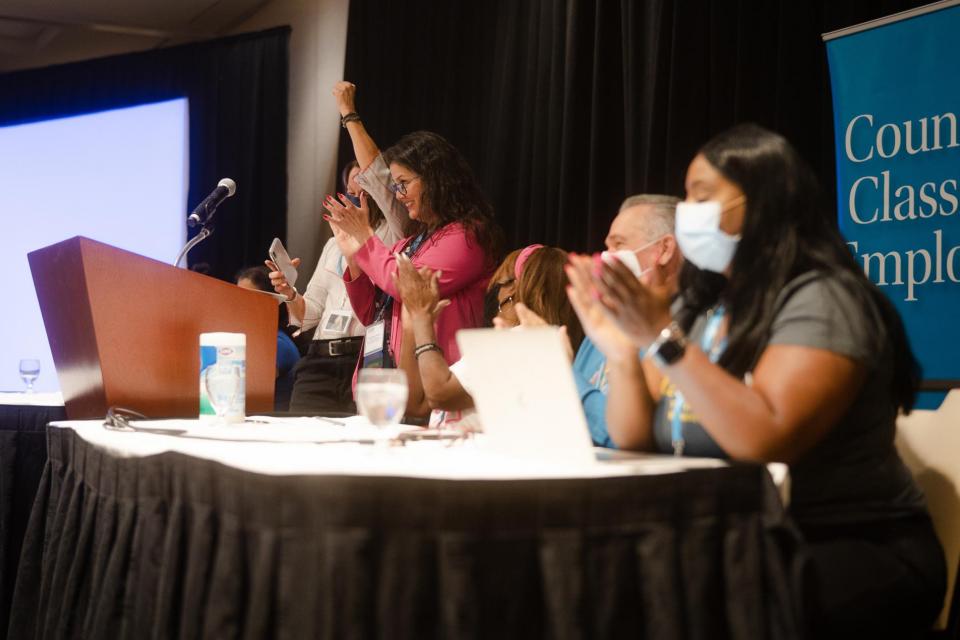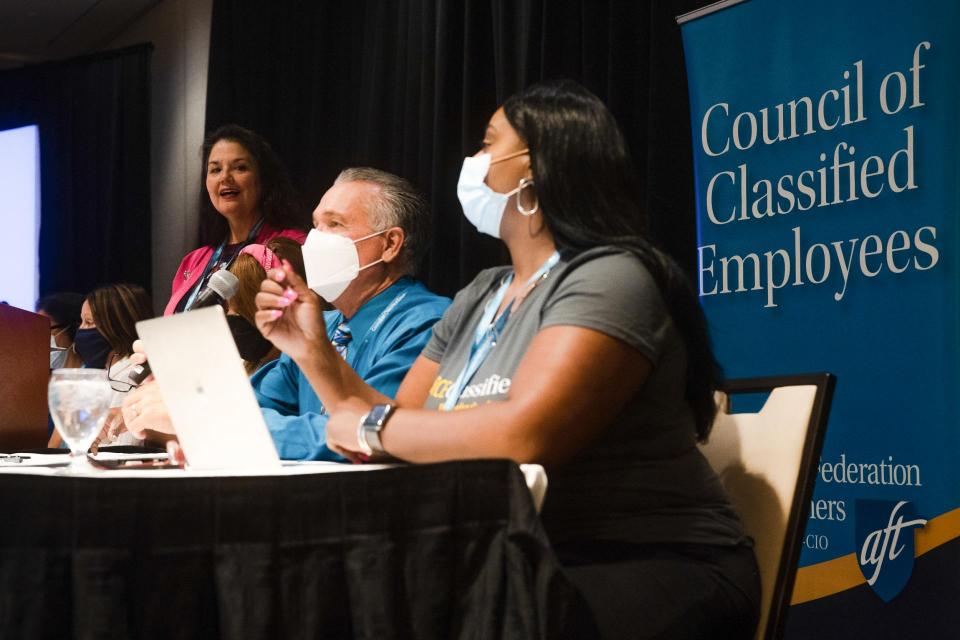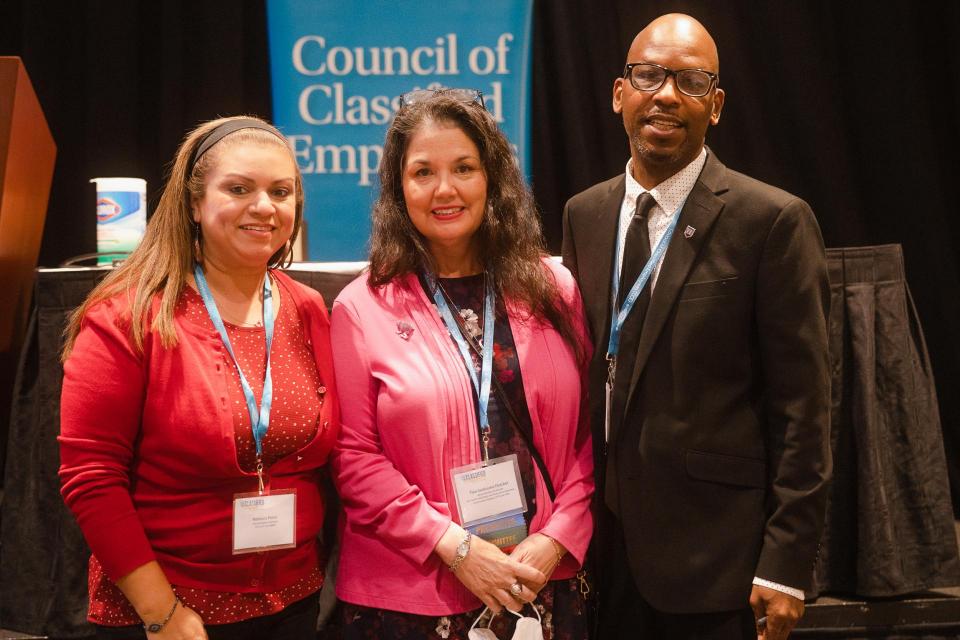Topic: Education Issues
Groundbreaking CFT survey calls out healthcare crisis among part-time faculty
Critical insights into part-time faculty in community colleges statewide
The results of CFT’s groundbreaking statewide survey of part-time faculty offer critical insights into the daily, personal, and structural challenges that part-time and contingent faculty experience when it comes to healthcare.
Continued enrollment woes create challenges for part-time faculty
Local unions finding solutions in pandemic-driven tough times
While California is showing strong signs of emerging from an economy ravaged by the pandemic, the community colleges are still reeling from the impact, most strongly demonstrated in the sharp decline in student enrollment. This has led to tough situations for many adjuncts, and for the local unions representing them.
HELU Winter Summit unites efforts across unions
Promotes socio-economic and racial justice in higher education
HELU, or Higher Education Labor United, a cross-union and cross-sector coalition, held its Winter Summit virtually on February 23-27, pushing forward with the larger goals of reclaiming the promise of higher education, and promoting socio-economic and racial justice embodied by the New Deal for Higher Education campaign and Scholars for a New Deal in Higher Education.
AFT task force tackles national staff shortages in education
CFT seeks to set minimum salaries and hourly pay
COVID didn’t create the national staffing crisis we face, but the pandemic has stretched classified and certificated members so thin that some schools have been forced to shut their doors.
AFT has stepped up to the challenge and created an Education Staffing Crisis Task Force co-chaired by Carl Williams, head of the CFT Council of Classified Employees and an AFT Vice President, and Michael Mulgrew, leader of AFT’s largest local union, New York City’s United Federation of Teachers.
Leadership Conference focuses on racial and social justice
Thurmond, Weingarten address delegates
About 200 CFT members from around the state converged at San Francisco’s Hyatt Regency for a Leadership Conference — the first time they’d been able to join together for such an event since the state shut down for COVID on March 13, 2020.
Seeming excited to see one another in person, attendees went to workshops, many dealing with racial and social justice issues, and heard from speakers including JEDI (Justice, Equity, Diversity and Inclusion) Organizer Cynthia Eaton, State Superintendent of Public Instruction Tony Thurmond, and AFT President Randi Weingarten.
Stand up to defend free thought, honest history, and gender identity
Right-wing targets schools and colleges across the nation
By Jeffery M. Freitas, CFT President
When I decided to become a teacher, I was focused on helping students and meeting them where they are. I became a mathematics teacher — slopes, quadratic equations, fractions, square roots and all. But I entered into the profession because I was interested in who my students are as people, not just in class. I wanted to understand their hopes and dreams and help them become the people they wanted to be.
New AFT report shows pandemic wreaked havoc on nation’s adjunct faculty
Transition to remote learning, impact of virus lead to declines in job security, increased reliance on public assistance
WASHINGTON — A new national adjunct faculty survey from the AFT underlines the brutal economic reality faced by millions of contingent and adjunct faculty at the nation’s colleges and universities — and illustrates how the pandemic further eroded job security and bolstered the need for public help.
Part-time faculty step up to win the healthcare they deserve
Dozens of faculty testify before state legislative committees
Dozens of CFT members testified this week in front of two different budget subcommittees of the California Legislature to urge our elected leaders in Sacramento to support Governor Newsom’s $200 million proposal in the state budget to fund healthcare for part-time faculty in California’s community colleges.
Following the launch of CFT’s campaign for part-time faculty healthcare last fall and a successful letter campaign, the governor included the $200 million in his January budget proposal.
UC lecturers’ victory inspires broad movement for equity across higher education
CFT wages a campaign for part-time faculty in the community colleges
By Jeffery M. Freitas, CFT President
For about three years the University Council-AFT engaged in protracted negotiations on behalf of lecturers in their unit. Their aims have always been about fairness — better working conditions for lecturers and improved learning conditions for students. Their fight has been about not only winning economic and contractual gains for members, but gaining professional respect and recognition for their teaching at the University of California. Their campaign has been a true member-driven effort, rooted in years of organizing by the statewide local that represents both continuing lecturers and librarians, led by their president, Mia McIver, and a committed negotiations team.
Overwork, underpayment, burn out and blame, lead to staff shortages
Unions speak to pandemic-driven shortage of teachers, subs, paras, classified
For years, California elementary and secondary schools have had teacher shortages, particularly in areas of special education, math, and science, but it’s grown worse since the pandemic started, with fewer teacher candidates getting credentials, and 26% more teachers retiring in 2020 than the year before.
What does gratitude look like? Find out from three members deep in student debt
How AFT’s legal victory with the Public Service Loan Forgiveness program will change lives
In 2018, Jessica Saint-Paul, who has a doctorate in medical science and teaches public health and health occupation courses at Southwest and Trade Tech colleges, attended a benefits conference put on by her local, the Los Angeles College Faculty Guild. They covered Public Service Loan Forgiveness, a federal program that promised if you worked in public service for 10 years and made 120 payments, the remainder of your loan would be forgiven.
Part-time faculty face loss of work, health benefits in COVID times
Locals negotiate vaccine stipends, reduced class minimums, retention of health benefits
As the COVID pandemic stretches into the fall, community college adjuncts have been hit especially hard by the decline in student enrollment, limited support services, and inadequate or even non-existent access to healthcare. The loss of work, loss of insurance benefits, and even the breakdown of personally financed yet essential teaching equipment have been the tragic results.
CFT launches campaign to secure healthcare for part-time faculty
“Adjuncts deserve, at the very least, the basic right of healthcare”
The pandemic has pushed many harsh realities in higher education to the forefront, none more so than the inadequacy of healthcare for part-time faculty. With the cost of an average COVID hospitalization, according to a number of sources, running in excess of $20,000, the financial effects alone on an uninsured part-timer contracting COVID can be devastating. Add a possible uninsured family member or members to the mix, and the reality becomes even more frightening.
“Power Despite Precarity” — how contingent faculty can build greater solidarity and success
BOOK REVIEW
Power Despite Precarity: Strategies for the Contingent
Faculty Movement in Higher Education
By Joe Berry and Helena Worthen
Pluto Press, 2021
Reviewed by Geoff Johnson
If there were two words which often define what may best be termed the “contingent condition,” they would be alienation and powerlessness.
New coalition groups take bold steps for higher ed justice
Higher Education Labor United expands labor outreach
Several months ago, when Congress began the budget reconciliation process, there were significant aspirations that the final bill would result in a significant uptick for higher education, including funding for free community college.
You may be eligible for Public Service Loan Forgiveness
AFT legal victory produces sweeping rule changes, and a year to apply
After years of pressure and lawsuits from AFT and other advocates, the U.S. Department of Education recently announced sweeping changes to the Public Service Loan Forgiveness (PSLF) program that will make it easier to qualify and easier to achieve forgiveness.
History, solidarity, reunion mark annual Classified Conference
PHOTO GALLERY
The annual Classified Conference was held October 15-17 with nearly 125 people making the trek to Las Vegas for CFT’s first in-person conference and a pre-pandemic style but COVID-safe program with plenary sessions, workshops, and social events.
Classified staff and paraprofessionals were happy to see each other again after nearly 19 months of pandemic isolation, and a virtual conference last year. They joined together under the theme “Classified Professionals — The Heart of Education.”
Back-to-School Tour puts staff shortage in stark perspective
Dedication and inspired work of our members must be recognized
By Jeffery M. Freitas, CFT President
In early August, Luukia Smith, Lacy Barnes, and I ventured up and down the state on a three week Back-to-School, Forward Together Tour. We visited with early childhood educators, TK-12 teachers, classified workers, adult education teachers, and part-time community college faculty. We witnessed firsthand students learning in-person. We saw the incredible school communities our members have helped to build and visited campuses and classrooms to see CFT members in action.
CFT launches community schools training program
Governor Newsom funds innovative schools at highest level in nation
The CFT has launched a training program following Governor Newsom’s extraordinary allocation of $2.8 billion to expand existing community schools and establish new ones.
According to CFT President Jeff Freitas, “This is a national effort, and California now has the largest amount of funding in the nation for community schools. These funds will assist nearly 1,000 community schools in our state.”
Urge governor to increase workload cap for part-time faculty
Send a letter in support of AB 375 now!
Please take a moment to urge Governor Newsom to sign AB 375, which would formally increase the workload cap available to part-time faculty from 67% up to 85% of a full-time faculty workload in California’s community colleges.

